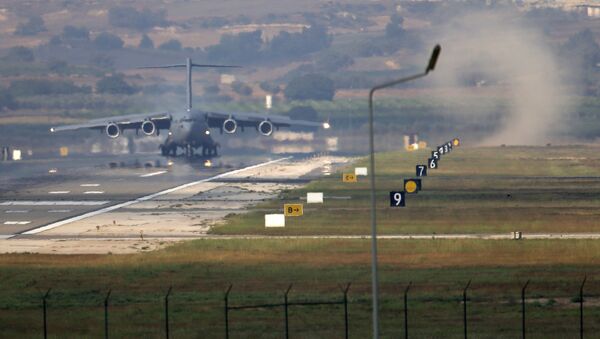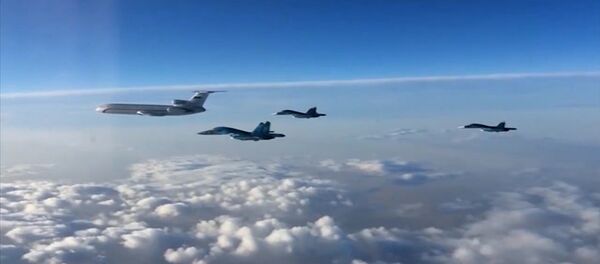On Monday, the Stimson Center, a Washington DC-based nonprofit think tank, released a report, urging policymakers in the US to remove B61 nuclear bombs from Europe and strengthen conventional forces instead.
Later, on Thursday, August 18th, Sputnik reported information initially published by Brussels-based EurActiv news outlet saying that the US forces have started an operation of relocation of its nuclear weapons from Incirlik to Deveselu base in Romania.
In about an hour since the initial report on Sputnik, Romanian Foreign Ministry officially denied that the country is going to host the US nuclear weapons in a letter to Russian RIA Novosti news agency.
Later that day Sputnik attempted to contact the US Department of Defense, but its spokesman Adam Stump declined to either confirm or deny the information.
Yesterday, on August 19th, Foreign Policy published an article, named "No, the the U.S. Is Not Moving Its Nukes From Turkey to Romania." The article quotes a nuclear weapons expert Jeffrey Lewis, calling the information unlikely. According to Lewis, Romania lacks the required infrastructure needed to store the weapons safely. Unfortunately, Foreign Policy did not provide any official confirmation or denial for the message.
On August 20th, World Bulletin published an article citing Amy Woolf, a researcher for nuclear weapons policy for the U.S. Congressional Research Service. According to Woolf, the nuclear weapons at Incirlik cannot be used, because they required a massive bomber that could drop them.
On August 20th, the Prime Minister of Turkey Binali Yildirim said that Russia could possibly use country's southern Incirlik Air Base if it becomes necessary. He also added that up to this point, Russia had no need for this base.
What's really going on at Incirlik?
While it's clearly impossible to say for sure, there are some more publications on the Web that drop hints at what may be happening.
There are reports on various websites citing a Tweet posted on August 16th by Ibrahim Karagul, a chief editor of Turkish newspaper Yeni Safak, saying "Nuclear weapons at Incirlik should be transferred to Turkey. Or Turkey should take these weapons into its own hands."
While this is solely a personal opinion of a particular Turkish citizen, it is interesting in connection with another publication.
These weapons could be reverse engineered and reproduced, Dagli says. Thus, Turkey or even Iran may get their own nuclear weapons, based on reverse-engineered American bombs. But why would Turkey aim to capture these bombs if it does not have a plane capable of delivering them?
Dagli assumes that this could be used as an excuse for actions against Turkey, as it happened with the occupation of Iraq, which was justified by "fabricated nuclear weapons reports, saying ‘Iraq produces nuclear weapons'", Dagli writes. Westerners find the journalist's concerns to be without merit.
"There was a great hope in July 15th, and the main source of this hope was Incirlik Airbase," he writes, referring to a failed coup attempt in Turkey. "All designs have failed, but, apparently, there are new plans being constructed involving Incirlik."
The B61 bombs stored at Incirlik, have first been put on service in 1968. But since then they have been upgraded many times, the last time being in 2012, which make an arguably contemporary weapon.
Sputnik will continue to monitor the developments around Incirlik.





